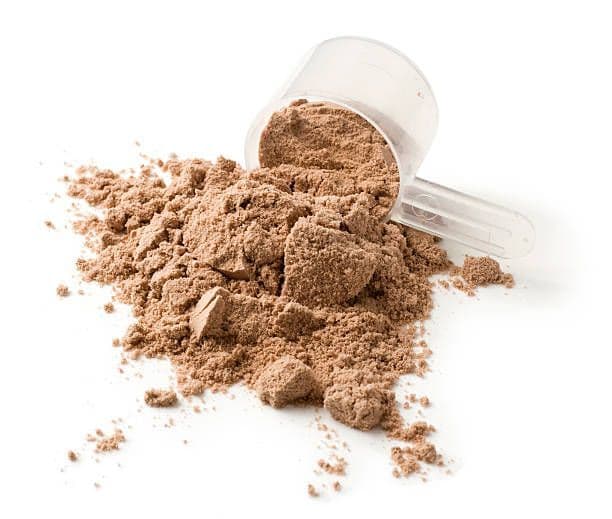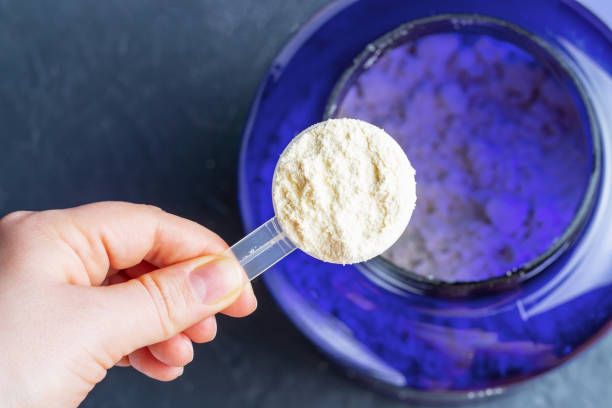
The Benefits of Whey Protein for Vegetarians and Vegans

Whey protein is a popular dietary supplement that is commonly used by athletes and fitness enthusiasts to support muscle growth and repair. While it is typically derived from cow's milk, it can also be produced from plant-based sources such as soy, pea, and rice. For vegetarians and vegans, the use of whey protein can be particularly beneficial, as it provides a high-quality source of protein that may be lacking in their diets.
One question that often arises among those following a halal diet is whether or not whey protein is permissible. Halal refers to any action or behavior that is permissible under Islamic law. In the case of whey protein, the answer depends on how it is produced.
If the whey protein is derived from cow's milk that has been produced by halal standards, then it is considered halal. However, if the cow's milk comes from an animal that has not been slaughtered according to Islamic guidelines, then the whey protein would be considered haram, or impermissible.
In addition to its halal status, whey protein provides several benefits for vegetarians and vegans. One of the main advantages of whey protein is its high bioavailability, which refers to the ease with which the body can absorb and utilize the protein. Whey protein is considered a complete protein, which means that it contains all nine essential amino acids that the body cannot produce on its own. This makes it an ideal source of protein for vegetarians and vegans, who may struggle to get enough of these essential amino acids from plant-based sources.
Another benefit of whey protein for vegetarians and vegans is that it is typically low in carbohydrates and fat, which makes it a great option for those who are looking to increase their protein intake without consuming excessive calories. This can be particularly beneficial for those who are trying to lose weight or maintain healthy body composition.
Whey protein is also beneficial for those who are looking to support muscle growth and repair. Resistance training is a common component of many fitness programs, and consuming adequate amounts of protein is essential for optimal muscle growth and recovery. Whey protein is particularly effective at promoting muscle protein synthesis, which is the process by which the body builds new muscle tissue.
In addition to its muscle-building benefits, whey protein has also been shown to have several other health benefits. For example, some research suggests that whey protein may help to lower blood pressure and improve blood sugar control, which can be particularly beneficial for individuals with type 2 diabetes. Whey protein may also help to reduce inflammation in the body, which is a risk factor for several chronic diseases.
For vegetarians and vegans who are concerned about the environmental impact of consuming animal products, it is worth noting that there are now several plant-based sources of whey protein available. These include soy, pea, and rice protein, among others. While these plant-based sources may not have the same level of bioavailability as whey protein, they can still be an effective way to increase protein intake for those following a vegetarian or vegan diet.
In conclusion, whey protein can be a valuable dietary supplement for vegetarians and vegans who may be lacking in protein due to the exclusion of animal products from their diets. While the halal status of whey protein depends on its production methods, it can be a permissible source of protein for those following a halal diet. In addition to its muscle-building benefits, whey protein may also have several other health benefits, including improved blood sugar control and reduced inflammation. For those who are concerned about the environmental impact of consuming animal products, there are now several plant-based sources of whey protein available that can be used as an alternative.
Whey Protein and Gut Health: How it Can Improve Digestion and Immunity
Whey protein is a popular dietary supplement that is well-known for its ability to support muscle growth and repair. However, research has also shown that it can have a positive impact on gut health, which is essential for overall health and well-being.
The gut is home to trillions of microorganisms, including bacteria, fungi, and viruses, collectively known as the gut microbiome. These microorganisms play a crucial role in maintaining a healthy immune system and supporting digestion. When the balance of these microorganisms is disrupted, it can lead to a range of health problems, including digestive issues and immune dysfunction.
One way in which whey protein can improve gut health is by promoting the growth of beneficial bacteria in the gut. Studies have shown that whey protein can increase the levels of Lactobacillus and Bifidobacterium, two types of beneficial bacteria that are known to support digestion and boost immunity. This is thought to be because whey protein contains bioactive peptides that have prebiotic properties, meaning that they can help to feed the beneficial bacteria in the gut.
In addition to promoting the growth of beneficial bacteria, whey protein may also help to reduce inflammation in the gut. Chronic inflammation in the gut is a risk factor for a range of health problems, including inflammatory bowel disease (IBD) and irritable bowel syndrome (IBS). Studies have shown that whey protein can help to reduce inflammation in the gut by modulating the activity of immune cells and reducing the production of pro-inflammatory cytokines.
Another way in which whey protein can support gut health is by improving intestinal barrier function. The lining of the gut is made up of a layer of cells that act as a barrier, preventing harmful substances from entering the bloodstream. When this barrier becomes compromised, it can lead to a condition known as a leaky gut syndrome, which is associated with a range of health problems. Studies have shown that whey protein can help to improve intestinal barrier function by increasing the production of tight junction proteins, which are essential for maintaining the integrity of the gut barrier.
Finally, whey protein may also have immune-boosting properties that can support overall health and well-being. The immune system plays a crucial role in protecting the body from infection and disease, and a healthy gut microbiome is essential for optimal immune function. Studies have shown that whey protein can help to boost immune function by increasing the production of immune cells such as T-cells and natural killer cells.
In conclusion, whey protein is not only a valuable dietary supplement for supporting muscle growth and repair, but it can also have a positive impact on gut health and immunity. By promoting the growth of beneficial bacteria, reducing inflammation, improving intestinal barrier function, and boosting immune function, whey protein can help to support overall health and well-being. If you are looking to improve your gut health and immune function, adding whey protein to your diet may be worth considering. However, it is important to consult with a healthcare professional before making any changes to your diet or supplement regimen.
Appreciate the creator